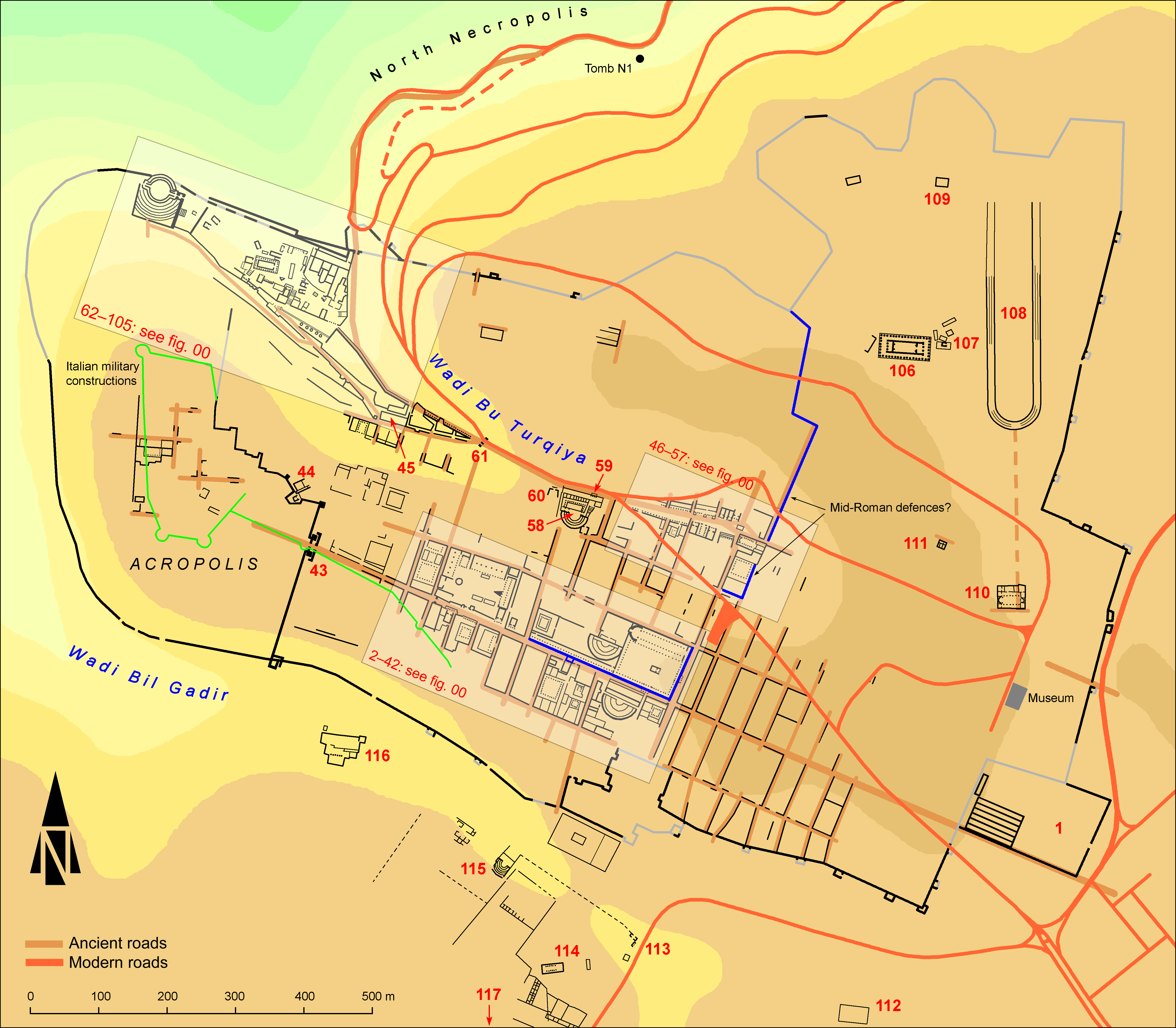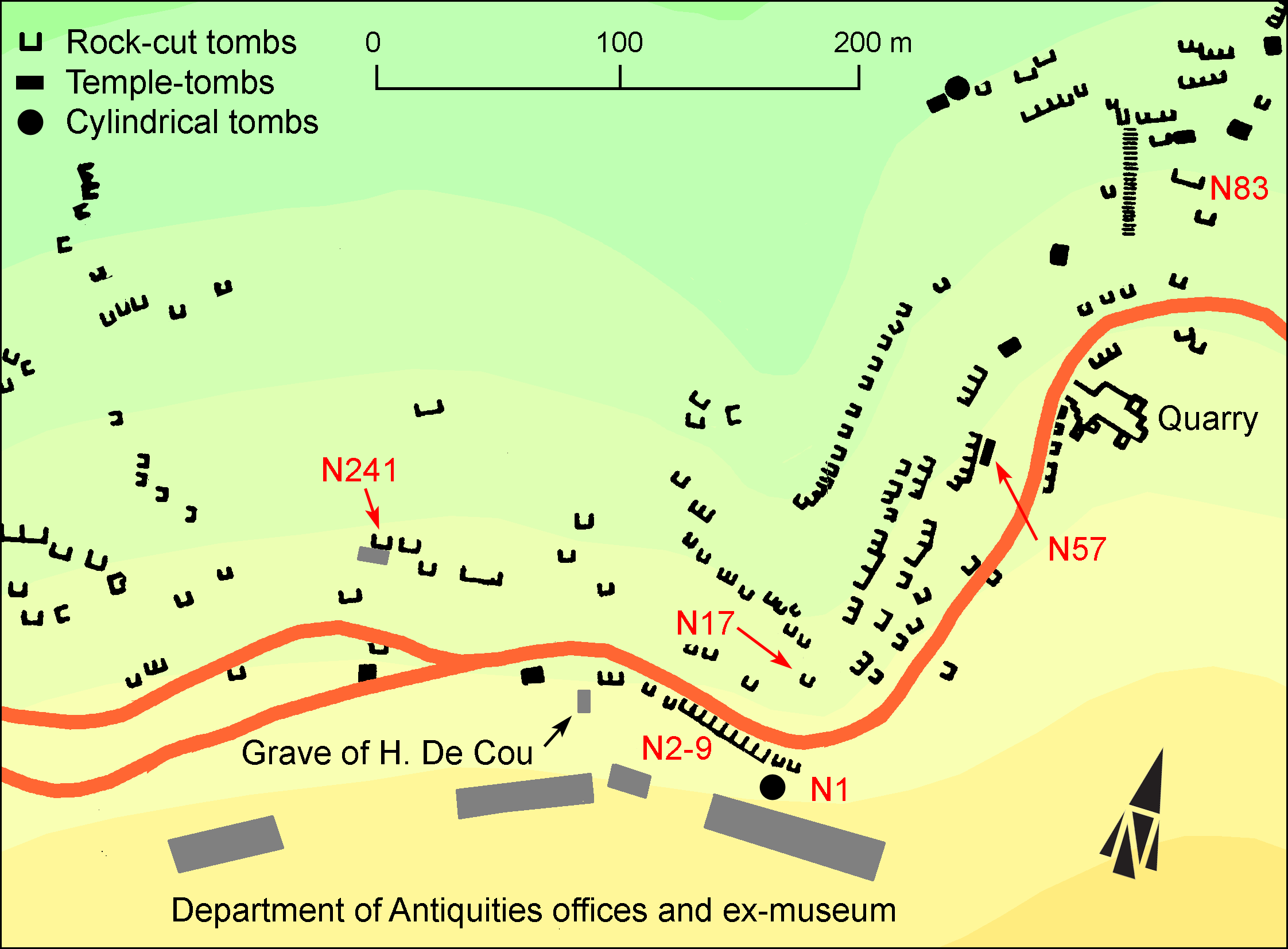EpiDoc XML:
IGCyr1187102
Trismegistos ID:
738736
Source description
Support: Limestone sarcophagus with double slope lid surmounted by a platform for a half-statue (wide 1.0; long 2.3).
Layout: Inscribed on the Northern part of the Eastern slope of the lid, in two lines.
Letters: Unknown; slantering mu and sigma; upsilon with tall tail.
Date: Perhaps fourth century BC (lettering, context).
Findspot: Found between 1955 and 1957 by A. Rowe at Cyrene ➚: North Necropolis, sarcophagus N 81.AA.
Place of origin: Findspot.
Last recorded location: Not found by IGCyr team.
Text constituted from: Transcription from editor and photograph (CDL).
Bibliography
Rowe – Rowe – Healy 1959, p. 8 and pl. 21 (photo); IGCyr 118710 ➚. Cf. Fraser – Matthews 1987, p. 269.
Text
French translation
Lysis fils de Lysis. Komôn fils de Komôn.
English translation
Lysis son of Lysis. Komon son of Komon.
Italian translation
Lysis figlio di Lysis. Komon figlio di Komon.
Arabic translation
ليسيس بن ليسيس. كومون بن كومون.
Commentary
Rowe was only able to give a copy in block-letters. Although the reading is not quite easy to check from the photograph, the sequence may be interpreted, supposing that ΙΣ was cut twice. Those surplus letters at line 1 and the oblique stroke at the end of each line prevented Rowe from offering an interpretation. Whereas the mention of the two Komon at line 2 was registered by Fraser – Matthews 1987 (obviously on J.M. Reynolds' advice), the two Lysis were not.
This instance of the oblique stroke for abbreviating a father's name identical with the son's one is probably the most ancient one. For another instance of Hellenistic age, see IGCyr0331002, a.I.10 and b.161. There are more occurrences in the Roman period
CC BY-NC-SA 4.0 Deed Attribution-NonCommercial-ShareAlike 4.0 International License.
All citation, reuse or distribution of this work must contain a link back to DOI: https://doi.org/10.60760/unibo/igcyrgvcyr2 and the filename (IGCyr000000 or GVCyr000), as well as the year of consultation.


